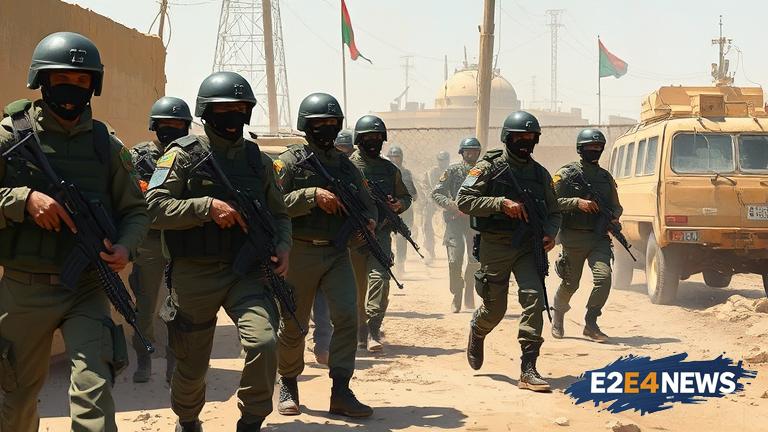The Israeli army has been carrying out a wave of arrests in the West Bank, targeting Palestinian civilians, including minors and elderly individuals. The raids, which have been ongoing for several days, have resulted in the detention of dozens of Palestinians, with many being taken from their homes in the middle of the night. The Israeli military has claimed that the arrests are part of an effort to crack down on terrorism and maintain security in the region. However, human rights groups and Palestinian officials have denounced the arrests as a form of collective punishment and a violation of international law. The arrests have been met with widespread condemnation, with many calling for the immediate release of the detainees. The Palestinian Authority has also condemned the arrests, stating that they are a clear example of Israel’s disregard for human rights and its commitment to perpetuating the occupation. The United Nations has also expressed concern over the arrests, calling for an end to the practice of administrative detention and the release of all detainees being held without charge. The Israeli army has been criticized for its use of excessive force during the raids, with reports of soldiers using tear gas, rubber bullets, and live ammunition to subdue and arrest Palestinians. The arrests have also been condemned by human rights groups, who have accused the Israeli military of violating the rights of Palestinians to due process and a fair trial. Many of the detainees are being held in Israeli prisons, where they are facing harsh conditions and mistreatment. The arrests have sparked widespread protests and demonstrations across the West Bank, with Palestinians calling for an end to the occupation and the release of all detainees. The international community has also been urged to take action to pressure Israel to end its practice of administrative detention and to respect the human rights of Palestinians. The situation in the West Bank remains tense, with many fearing that the arrests will lead to further escalation and violence. The Israeli army has stated that it will continue to carry out arrests and raids in the West Bank, citing the need to maintain security and prevent terrorism. However, many have questioned the legitimacy of these claims, arguing that the arrests are a form of intimidation and a means of maintaining control over the Palestinian population. The Palestinian people have been living under occupation for decades, and the arrests are just one example of the many forms of oppression and discrimination that they face on a daily basis. The international community has a responsibility to act to protect the human rights of Palestinians and to work towards a just and lasting peace in the region. The arrests are a clear example of the need for a comprehensive and lasting solution to the Israeli-Palestinian conflict, one that addresses the root causes of the conflict and provides for the rights and dignity of all people in the region. The situation in the West Bank is a complex and multifaceted one, with many different factors and players involved. However, one thing is clear: the arrests of dozens of Palestinians by the Israeli army are a serious violation of human rights and a major obstacle to peace and stability in the region. The Israeli government has been accused of using the arrests as a means of distracting from its own domestic problems and of maintaining a sense of fear and uncertainty among the Palestinian population. The arrests have also been seen as a means of punishing Palestinians for their refusal to accept Israeli occupation and of intimidating them into submission. The Palestinian people have a long history of resistance to occupation, and the arrests are just one example of the many forms of oppression and discrimination that they have faced over the years. Despite the challenges and difficulties that they face, the Palestinian people remain committed to their struggle for freedom and self-determination, and they will continue to resist the occupation and to demand their rights until they are fully realized.
